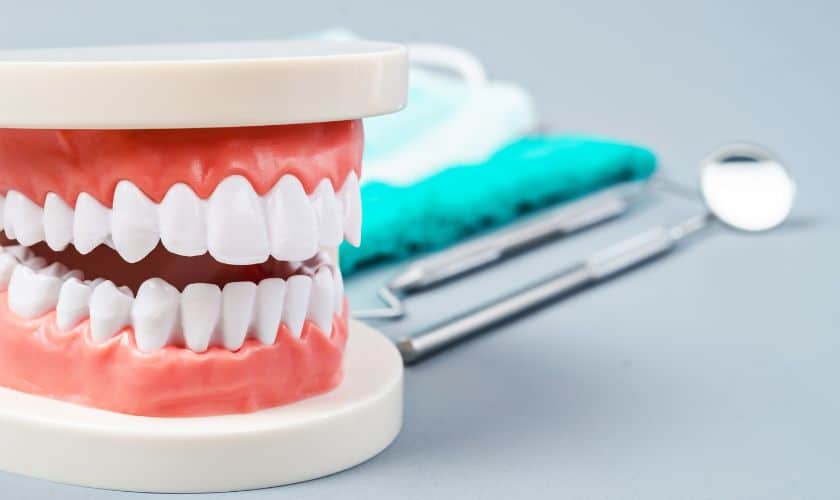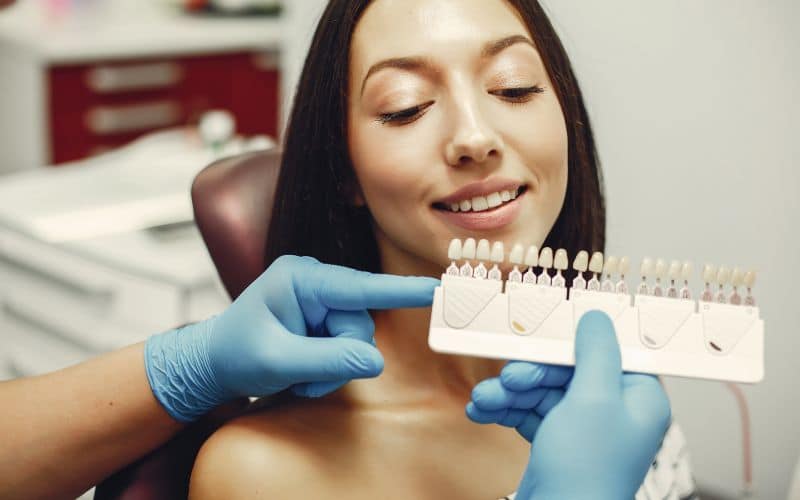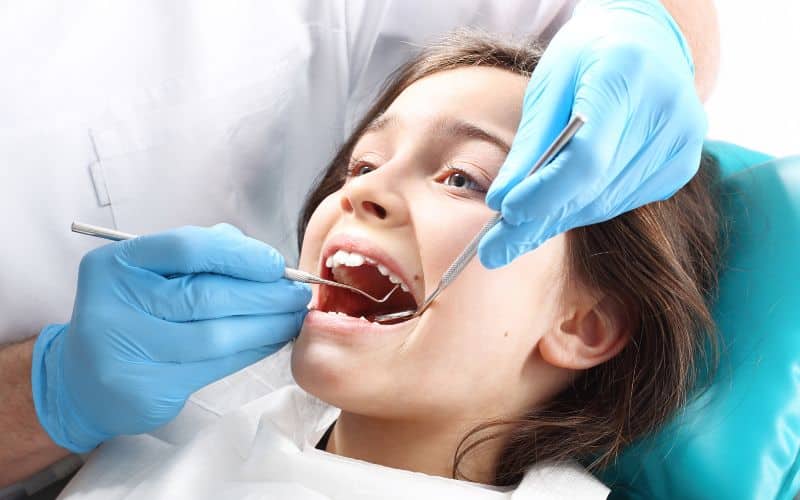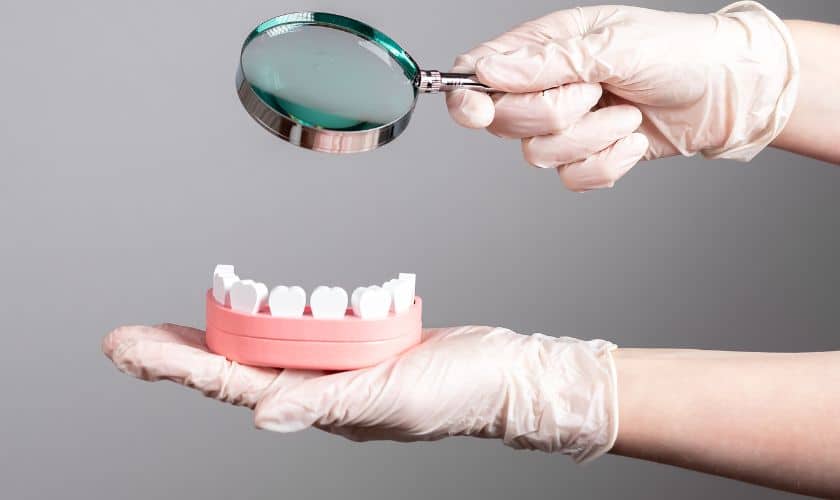Visit Diamond Lakes Dental Today Or Call 501-623-7113
The Role of Dental Hygienists in Teeth Cleanings

Welcome to the world of dental hygienists and their vital role in teeth cleanings! In this post, we’ll uncover the importance of teeth cleanings, the professionals responsible for the results, and why regular visits to your dental hygienist are crucial for a healthy smile. Join us in discovering the power of dental hygiene!
What is teeth cleaning, and why is it important?
Regular teeth cleanings are essential for maintaining good oral hygiene. These cleanings, also called dental prophylaxis, remove plaque, tartar, and stains from your teeth. Dental hygienists use tools like scalers to remove buildup and polishers to eliminate surface stains.
These cleanings offer more than just a bright smile; they prevent gum disease by removing harmful bacteria and can detect early signs of tooth decay or other issues. To maintain optimal oral health, schedule routine cleanings every six months or as your dental professional recommends. Combine this with daily brushing, regular flossing, a balanced diet, avoiding sugary foods, and smoking for the best results. Collaborate with skilled professionals like dental hygienists during your appointments to ensure a healthy smile. Your smile will thank you!
The role of dental hygienists in teeth cleanings
Dental hygienists are vital for maintaining clean and healthy teeth. They work alongside dentists to provide preventive oral health services, primarily on thorough teeth cleanings. Using specialized tools like scalers and ultrasonic devices, they remove plaque and tartar buildup, preventing tooth decay and gum disease.
Dental hygienists also assess oral health, checking for gum inflammation and abnormalities. They can detect early signs of issues like cavities or periodontal disease.
Additionally, they educate patients on proper oral hygiene techniques, including brushing, flossing, and product recommendations for optimal at-home care.
Becoming a dental hygienist requires rigorous training in accredited programs, ensuring they know how to perform their duties effectively.
In summary, dental hygienists are essential for good oral health, thanks to their expertise in teeth cleaning and patient education. Regular visits and following their recommendations at home are key to achieving the best results.
The training and qualifications of dental hygienists
- Dental hygienists play a vital role in oral health maintenance, and their path to becoming professionals involves rigorous training and qualifications.
- To become a dental hygienist, individuals must complete an accredited dental hygiene program, typically lasting two to three years and offered by community colleges or universities.
- Their education covers various subjects, including anatomy, physiology, radiography, and periodontology.
- After formal education, dental hygienists must pass written and clinical exams to obtain licensure, ensuring they have the necessary skills to provide quality care.
- Many states require dental hygienists to engage in continuing education to stay updated with advancements in the field.
- Dental hygienists can pursue additional certifications or specialties, such as pediatric dentistry or periodontal therapy, to expand their skills and offer specialized services.
- This extensive training equips dental hygienists with the expertise to provide thorough cleanings and assist dentists effectively.
- Understanding the training involved highlights the level of skill and knowledge dental hygienists bring to our oral health care.
Tools and techniques used by dental hygienists
Dental hygienists use specialized tools and techniques for effective teeth cleanings:
- Ultrasonic scaler: Breaks down deposits with high-frequency vibrations, killing bacteria that can cause gum disease.
- Hand instruments like scalers and curettes: Allow precise cleaning along the gum line and between teeth, preventing plaque from hardening into tartar.
- Polishing devices: Provide a smooth finish after scaling, removing stains and residue for a brighter smile.
- Diagnostic tools: Tools such as X-rays and intraoral cameras Aid in accurate diagnosis and treatment planning.
Benefits of regular teeth cleanings
Regular teeth cleanings with dental hygienists are essential for multiple reasons:
- Plaque and Tartar Removal: Hygienists use specialized tools to effectively remove hard-to-reach plaque and tartar, reducing the risk of cavities and gum disease.
- Early Issue Detection: Cleanings help identify early signs of oral health issues like tooth decay or gum disease, enabling timely treatment.
- Fresh Breath: Plaque removal during cleanings eliminates bacteria responsible for bad breath, resulting in fresher breath.
- Overall Health: Good oral hygiene through regular cleanings may reduce the risk of systemic conditions like heart disease or diabetes.




